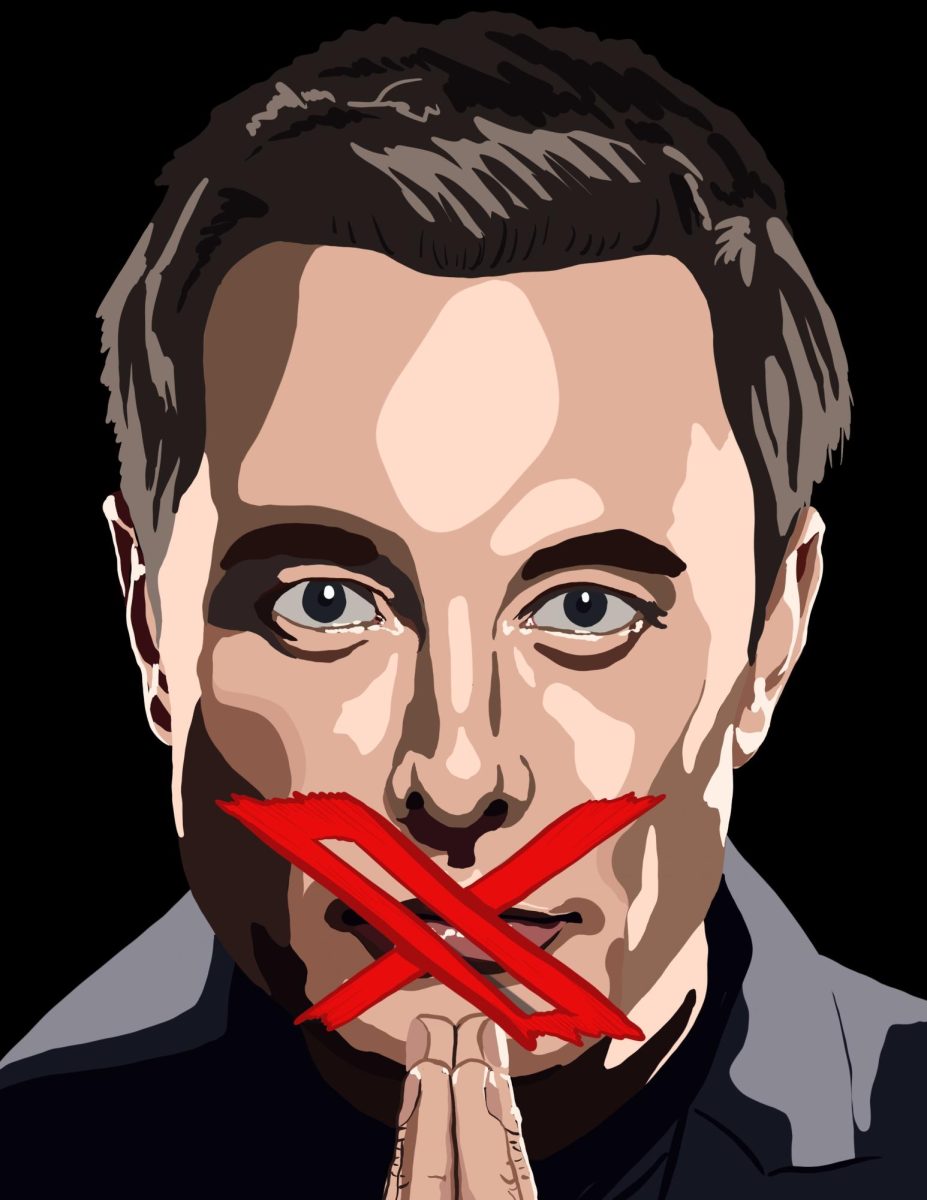Elon Musk has spent the past several years slowly making his way to “Most Polarizing Public Figure of the 2020s” status, and he is showing no signs of stopping. Initially achieving fame with his electric car brand Tesla, his most recent endeavor of purchasing ownership of Twitter, now X, has completely reshaped his online and offline persona.
Since taking over X, Musk has invented the concept of free speech. Or, more accurately, he has decided that it is completely appropriate to give a platform to conspiracists and right-wing propagandists who are actively spreading harmful disinformation —upon which he’s throwing the misleading label of “free speech.”
Former President Donald Trump is just one example of an individual that was platformed by Musk. Re-platformed, that is. After the insurrection of Jan. 6, 2021, Twitter had taken down Donald Trump’s account for safety purposes and for violation of their company rules. Trump had encouraged his cult-like following to march to the Capitol in protest of the election results, and, shockingly enough, they did exactly that. The instance posed an immense threat to national security, and Trump was therefore removed from Twitter as a preventative measure.
This is not the only questionable thing that Trump has ever done, but it is the specific thing that prompted his removal from Twitter. When Musk took ownership of the network, he reinstated Trump’s account in the name of “free speech,” or triggering a coup attempt of your own nation’s Capitol as some call it.
Brazil faced an eerily similar situation about two years following the insurrection in the United States. Supporters of right-wing former president of Brazil, Jair Bolsonaro broke into government buildings following Bolsonaro’s failure to be re-elected in the 2022 presidential election. As a result, Justice Alexandre de Moraes prioritized taking action against individuals who spread misinformation online. When de Moraes requested that several X accounts in support of Bolsonaro be taken down on the basis of spreading dangerous misinformation, a request that is perfectly legal in Brazil, Musk declined. X has since been banned in Brazil.
The request was made as a preventative measure and an acknowledgement of past events. However, even in the name of preserving one’s democracy, Musk wants nothing to do with stopping someone from voicing their opinions… even if those opinions introduce genuine threats to national security. Musk called de Moraes a “pseudo-judge” for his decision.
Elon Musk is not the visionary founding father that he imagines himself to be, and his complete lack of self-awareness seems to fuel his inflated ego. As a public figure with immense influence, one might expect him to focus on spreading positive messages and addressing pressing global issues. However, not everyone is suited for the spotlight. His reckless statements and questionable decisions have a far-reaching impact, often shaping public opinion in troubling ways rather than fostering meaningful discourse.
So I pose a question to Elon Musk: is this the embarrassment you want to be?






















M • Sep 24, 2024 at 8:37 pm
Completely disagree with your premise. Elon Musk did not “invent the concept of free speech”. It is in our very first amendment of the Constitution. You may not like Elon Musk or Donald Trump for that matter. Clearly you don’t.
However, you cannot bar their speech. You can however express exactly what you think of them. What a wonderful country we are blessed to live in…
Joe Ran • Sep 23, 2024 at 7:44 pm
“I prefer dangerous freedom over peaceful slavery.”
-Thomas Jefferson